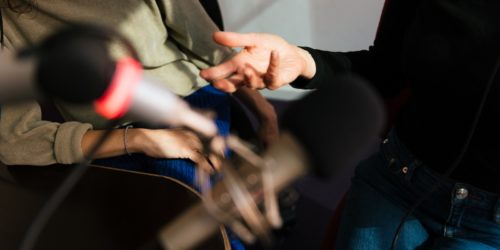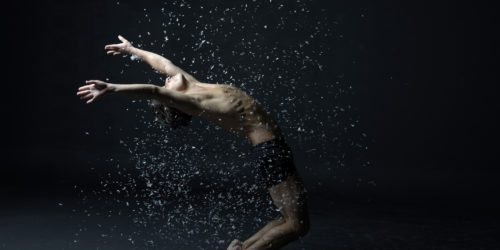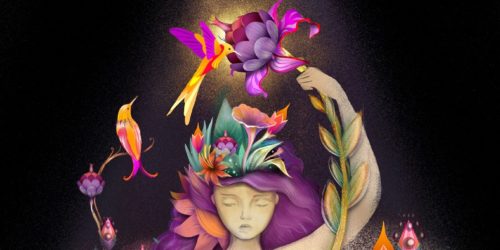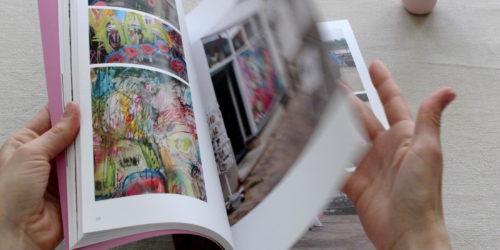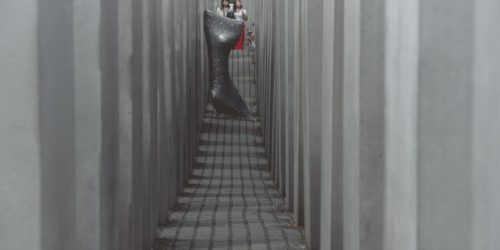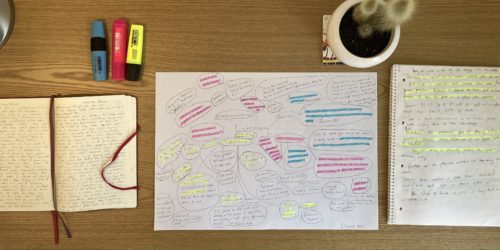Dance Moves Music Moves Dance: multidisciplinary approaches between contemporary dance and baroque music. Daniel Wendler
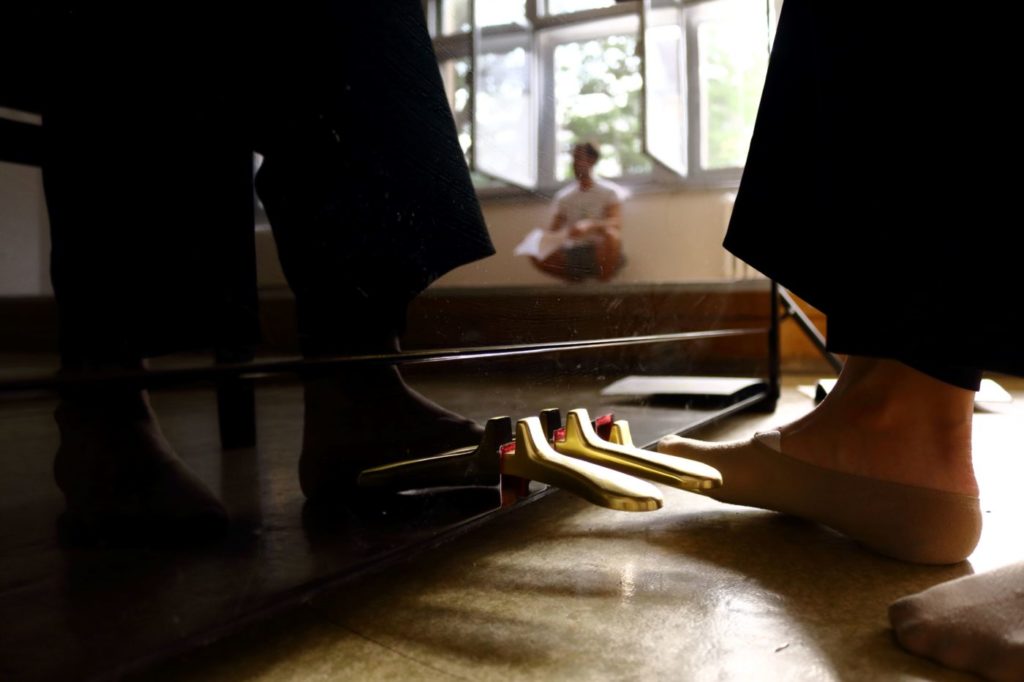
something old:
For as long as I can remember, my interests have always spanned between disciplines. I grew up in a musical family and studied classical guitar and singing, as well as acting and dance, which allows me to work in a wide range of artistic expressions (from contemporary dance pieces or classical music concerts to non-official theatre).
Since I arrived in Europe five years ago, I have started to work a lot as an opera singer. This surprises me because I never expected to work so much (only) as a singer. At the same time, I undoubtedly felt challenged by the culture shock, multiculturalism, diversity, and disruption, especially as a Latin American feminist artist working with European art forms. But far from alienating me, this opportunity connected me even more to a real desire: the relationship between baroque music and movement. Or even more specifically, how a single body can simultaneously bring together different discourses: a body that sounds and moves, a musician who moves the space, a moving orchestra, a moving singer.
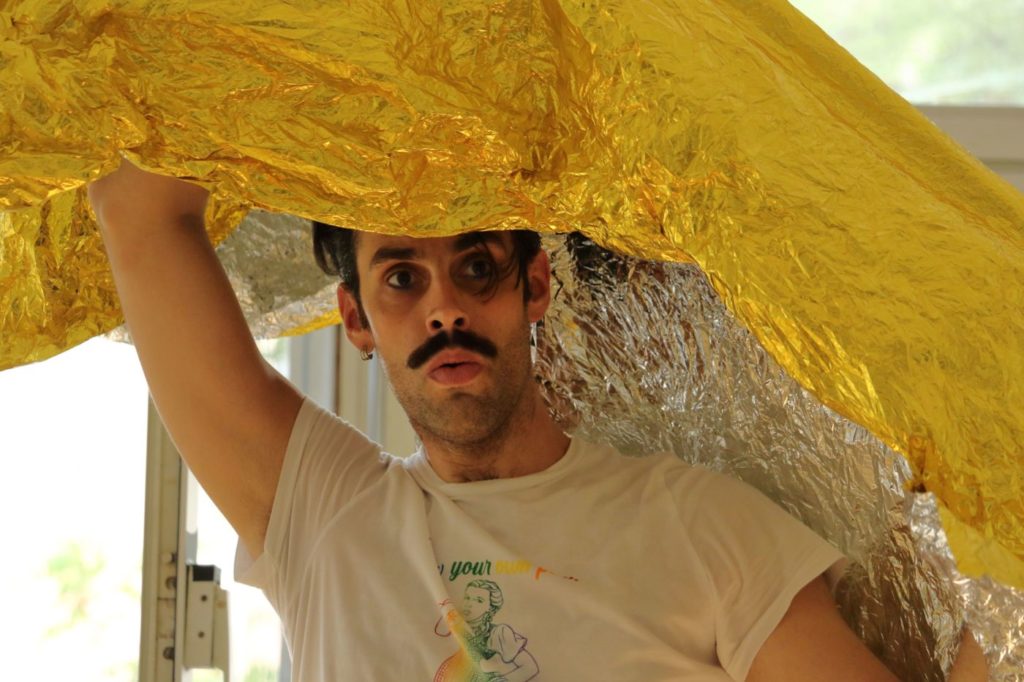
the trials:
I organize my grant in two major residencies, the first was on art songs and movement and the second on baroque music and movement. For these periods, I invited trained musicians to collaborate.
At the level of artistic research, we essentially worked with improvisational tasks that framed the work around IMPROVISATION-DOCUMENTATION-DISCUTION-REPETITION. Based on these improvisations, I created a “small everyday dramaturgy” with the aim of creating a small summary at the end of the research period. In this way, we researched 22 art songs by German, French, and Argentinians composers, working on them musically while integrating/interrupting them through dance and text improvisations. In the second residency, we explored BWV 86 (Bach cantata), “Dalla guerra amorosa” by Händel, and some flute pieces by Telemann. These different landscapes allowed me to develop a kind of mini-pieces based on the music, gestures, choreographies and material from the movement improvisations.
The process was quite intense and challenging. I find that being a director, producer and performer at the same time and going through a rehearsal process requires a lot of perseverance and compromise.
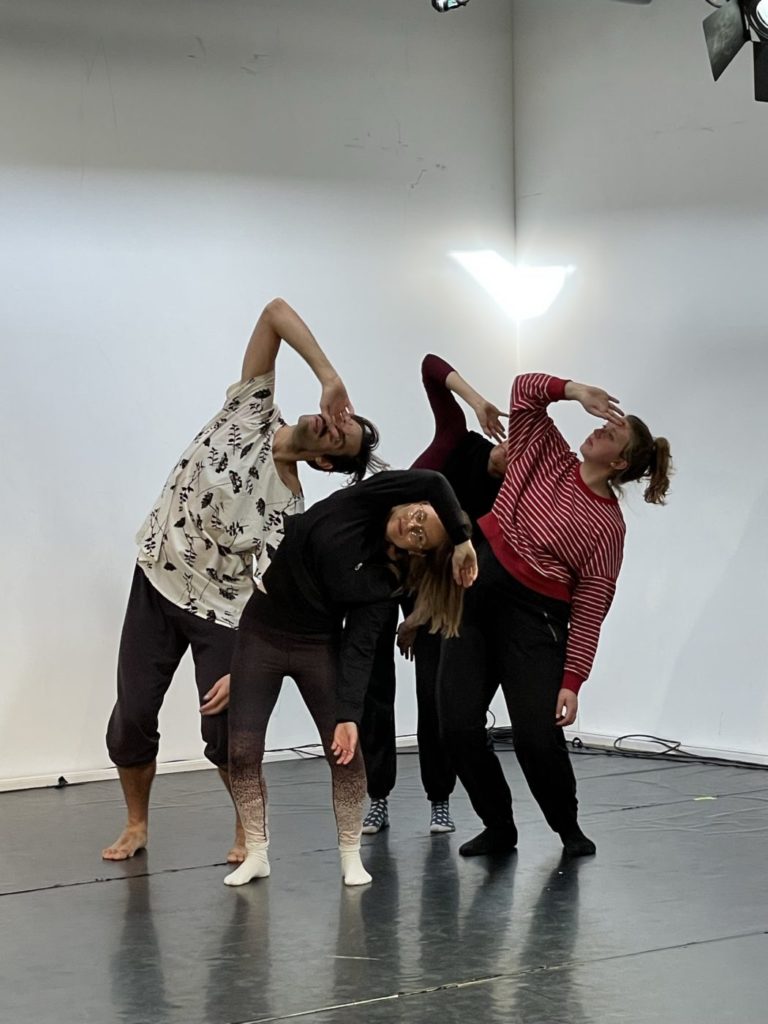
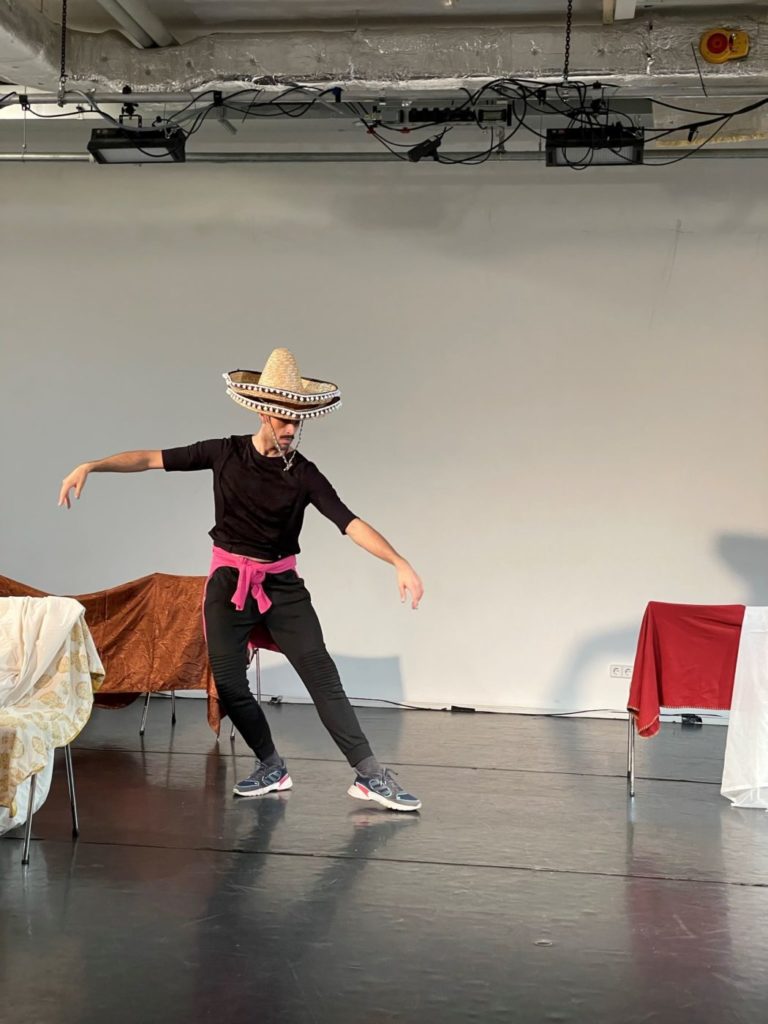
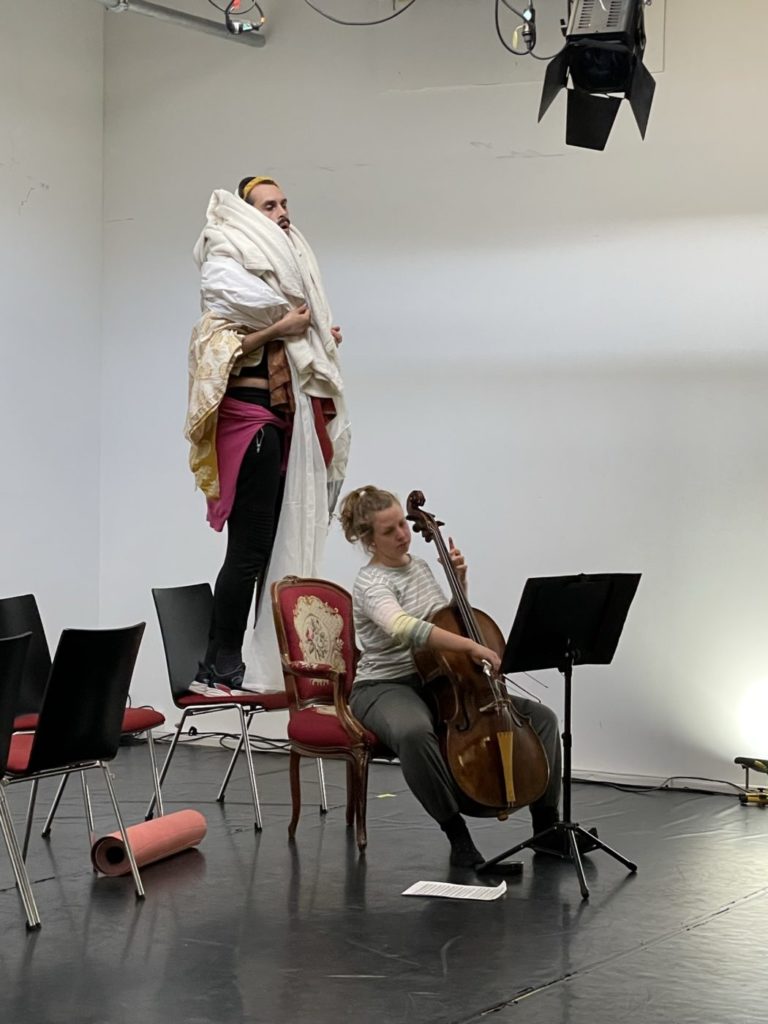
findings:
This grant has allowed me to begin my journey as a creator in Germany, and at the same time has sparked my interest in making it happen. It has shown me how important and insightful multidisciplinary research can be, and it has allowed me to find ways to achieve it. It has also been an invitation to think a thousand times about the possibilities of collaboration between music, dance, and theatre, to explore their boundaries, and to sketch the profile of what I want to do.
Zugabe…
„(…) come back from rehearsals, download videos, sit down and watch all the footage, make decisions, send the program for the next day, think about the concept, rethink the idea. Lose the idea, find it again, find it differently. Translate a task so that the musicians can understand me. Fight for my idea, trust in it. Don’t lose the passion. Find a poetry, lose it. Stay empty, without a good idea. Go to the supermarket and think about the process, come back, and think about it again. Sit down, write. Drink water, stretch my back, write down ideas and strategies. Find the meaning, lose it. Find me. And then let me go (…)“

